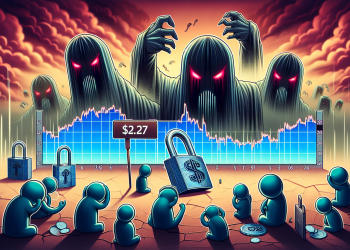OpenAI recently rolled out an update aimed at reducing ChatGPT’s tendency to make things up—what the AI industry calls “hallucinations.” After spending two weeks testing this updated version across various tasks, from meal planning to coding help, I’ve discovered a classic case of unintended consequences. While the fix succeeds in making ChatGPT more accurate, it also makes the AI assistant noticeably less helpful for certain everyday tasks.
Setup and First Impressions
The update applies automatically to ChatGPT users, requiring no manual installation or settings adjustment. Upon first use, you’ll notice subtle but important changes in how the AI responds. Where ChatGPT previously jumped into answers with confidence, it now frequently pauses to clarify questions or admits uncertainty. During my initial testing session, I asked ChatGPT to help plan a dinner party menu. Instead of the usual enthusiastic recipe suggestions, it asked three clarifying questions about dietary restrictions, cooking skill level, and available equipment before offering any recommendations.
This cautiousness extends across all interactions. Simple requests that once generated immediate responses now often trigger follow-up questions or disclaimers about the AI’s limitations.
Daily Use Performance
In practice, the hallucination fix creates a noticeable shift in ChatGPT’s personality and usefulness. For factual queries—checking historical dates, explaining scientific concepts, or verifying product specifications—the improvement is clear. ChatGPT now more reliably flags when it’s unsure about information rather than confidently stating incorrect facts.
However, creative and brainstorming tasks suffer considerably. When I asked for gift ideas for a teenager interested in astronomy, the pre-update ChatGPT would generate 15 creative suggestions ranging from telescope accessories to astronomy-themed jewelry. The updated version provided just five generic options, prefaced with multiple caveats about not knowing the specific teenager’s preferences or budget.
The impact on productivity varies by use case. Professional users handling research or fact-checking benefit from increased reliability. But creative professionals, students brainstorming essay topics, or anyone using ChatGPT for inspiration may find the tool less valuable. During testing, tasks that previously took one prompt now often require three or four exchanges to achieve similar results.
Technical Performance Testing
Response times have increased slightly, averaging 2-3 seconds longer per query in my testing. This stems from the additional processing required to verify information and generate more cautious responses. While not dramatic, the cumulative effect during extended ChatGPT sessions becomes noticeable.
Accuracy improvements are measurable but context-dependent. In 50 fact-based queries spanning history, science, and current events, the updated ChatGPT provided incorrect information only twice, compared to seven errors in similar testing with the previous version. However, the AI now declines to answer or provides heavily qualified responses to approximately 30% more queries than before.
User Experience Pain Points
The biggest frustration emerges from ChatGPT’s newfound reluctance to engage with hypothetical scenarios. Creative writing assistance, brainstorming sessions, and exploratory conversations all suffer from excessive hedging. A request for “unusual pizza topping combinations” that once yielded adventurous suggestions now returns safe, conventional options with warnings about taste preferences being subjective.
The constant disclaimers also interrupt conversational flow. Nearly every response includes some variation of “I should note that…” or “It’s important to remember that…” While technically accurate, this defensive posture makes ChatGPT feel more like a legal document than a helpful assistant.
Value Proposition
For ChatGPT’s free tier users, the update is mandatory and represents a mixed bag. You gain reliability but lose spontaneity and creative assistance. Plus subscription users ($20/month) feel the impact more acutely since they’re paying for capabilities that have been effectively reduced in certain areas.
The value calculation depends entirely on your primary use case. Researchers, students writing papers, and professionals needing accurate information get better value post-update. Creative users, brainstormers, and those seeking an AI companion for exploratory conversations receive diminished value.
Comparison Shopping
Anthropic’s Claude remains more willing to engage with creative and hypothetical scenarios while maintaining reasonable accuracy. Google’s Gemini falls somewhere between the updated ChatGPT and Claude, offering a balance of creativity and caution. For users prioritizing creative assistance over strict accuracy, these alternatives may better serve their needs.
Microsoft Copilot, using similar OpenAI technology, will likely receive comparable updates, making alternative AI platforms more attractive for creative tasks.
Bottom Line Recommendation
The hallucination fix succeeds in its stated goal but fundamentally changes ChatGPT’s character. If you primarily use ChatGPT for research, fact-checking, or professional writing where accuracy is paramount, this update improves the service. You should continue using ChatGPT with greater confidence in its responses.
However, if you rely on ChatGPT for creative projects, brainstorming, or enjoy free-flowing AI conversations, consider exploring alternatives. The update transforms ChatGPT from an enthusiastic creative partner into a cautious fact-checker. While this isn’t necessarily bad, it may not align with what many users originally found valuable about the service.
For most users, keeping ChatGPT in your toolkit makes sense, but you may need to adjust expectations and potentially add another AI service for creative tasks. The era of ChatGPT as a do-everything AI assistant may be ending, replaced by a more specialized but limited tool.






